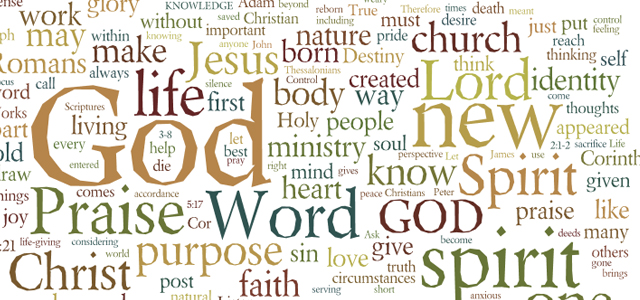To judge is to discriminate, to separate one thing from another. The Gospel of John portrays Jesus as the light of the world. The same light shines on everyone, but there are different ways of responding to it. Some walk gladly into the light while others screw their eyes shut and remain in darkness. In this way, Jesus is the world’s judgment. It is not that he is gracious to some and full of wrath towards others. Jesus is “full of grace and truth” (John 1:14), but this grace creates a division among those who encounter it.
Some of the fathers of the early church taught that heaven and hell are in fact the same place. Origen of Alexandria illustrated this with the example of students in a classroom. The same lecture can be an experience of bliss for one student and torment for another. One is excited while the other is bored. Both students are in the same place. Both are listening to the same teacher. But one is heaven and the other is in hell.
In the same way, Origen suggested, everyone will ultimately be brought into the presence of the love of God. But if some people have habitually hardened their hearts to love, then they will experience it not as bliss but as a tormenting fire. This is not because God has rejected them. It is because the dazzling divine light has exposed their hardness of heart, driving them deeper into their own internal darkness. As Isaac of Syria put it in a seventh-century sermon, hell is not the absence of love but “the scourge of love.”
In thinking this way about judgment, the ancient Christians were very careful to avoid the impression that there are two different Gods; a God of grace and a God of wrath. This would lead straight to the theological nightmares of Gnosticism. Whatever we say about judgment, we cannot end up with a picture of two different Gods or a God with two faces. The one face of God is revealed in Jesus Christ. “God is light, in whom there is no darkness at all” (1 John 1:5).
The judgment that Christ brings, moreover, is not just a division between persons. When Christ’s light shines into our lives, it creates a division within ourselves. None of us is entirely good or entirely bad. All of us are a mixture. The bad grows up in our lives like weeds among the wheat, and the two are so closely entwined that we can hardly tell the difference (Matt 13:24-30). Sometimes our worst mistakes turn out to produce good fruit. Sometimes we discover that our virtues have produced unforeseen collateral damage. Our lives are not transparent to ourselves. We cannot easily tell where the good ends and the bad begins.
So it is a great comfort to know that one day someone else will come and lovingly separate the good from the bad in our lives. The confession that Christ will come as judge is not an expression of terror and doom. It is part of the good news of the gospel. It is a joy to know that there is someone who understands all the complexities and ambiguities of our lives. It is a joy to know that this one – the only one who is truly competent to judge – is “full of grace and truth.” He comes to restore, not to destroy.
Christ’s judgment will be the best thing that ever happens to us and to our world. On that day, all the weeds will be removed at last, and for the first time we will be able to see the truth of our lives – and to know that, in spite of everything, we are loved.
Ben Myers is Lecturer in Systematic Theology at United Theological College





